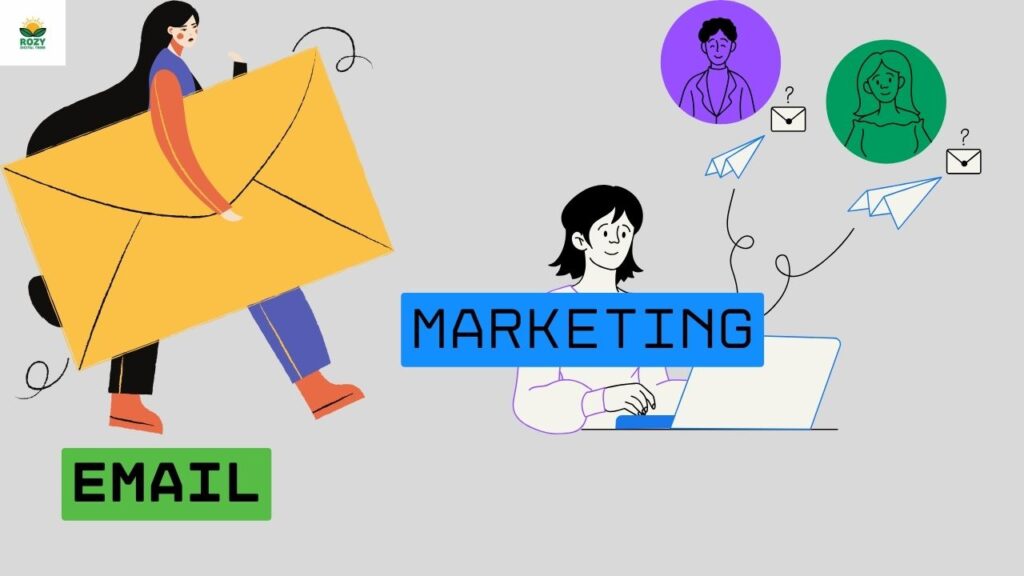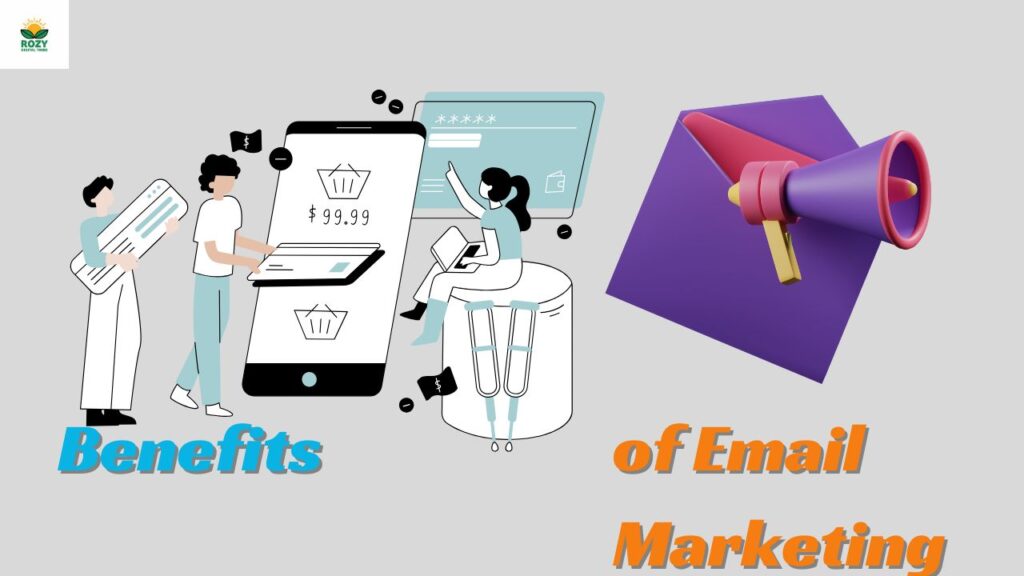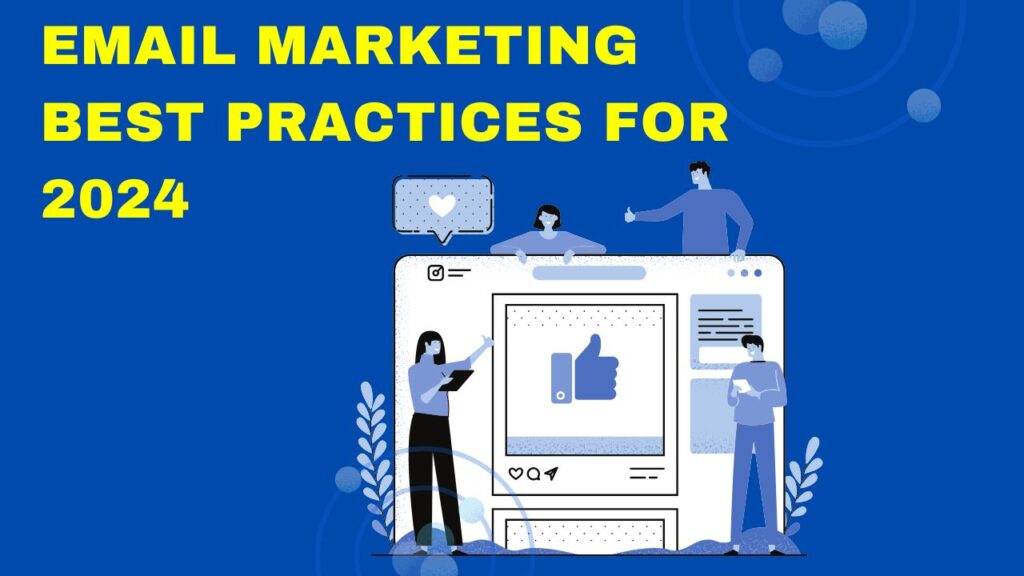Table of Contents
ToggleEmail Marketing Best Practices for 2024
Email Marketing Best Practices for 2024. Email has its own place in the world of marketing which no one can replace. Email marketing is considered reliable. Today people trust email. Email is very important for every official work.
In today’s blog, we will know email marketing best practices for 2024 and everything about email in detail in this blog, stay with us till the end.
What is Email Marketing?

Email marketing is a digital marketing strategy that involves sending targeted messages via email to promote products, services, or build customer relationships.
It is a cost-effective method to connect with your audience, nurture leads, and drive conversions. Businesses use email marketing to share updates, offer promotions, or educate subscribers with valuable content.
By leveraging personalized email campaigns, marketers can create meaningful interactions and improve customer retention. With tools for email automation, segmentation, and analytics, email marketing allows for precise targeting and measurable results.
This strategy remains crucial for businesses in 2024, enabling them to stay competitive in a digital-first world.
Benefits of Email Marketing

Email marketing is a powerful tool for businesses, offering numerous advantages that drive growth and customer engagement. Here are the key benefits:
Read Also -: Build strong personal brand as a Digital Marketer
1. Cost-Effective Marketing Strategy
Email marketing is widely regarded as one of the most affordable marketing strategies, making it an excellent choice for businesses of all sizes. Unlike traditional advertising channels, such as print or TV, email campaigns require minimal investment while delivering significant results.
Tools for cost-efficient campaigns allow businesses to automate processes, segment audiences, and track performance without incurring high expenses.
Email marketing enables low-budget advertising, as there are no costs for printing or postage, and digital tools often offer scalable pricing based on the size of your audience.
This combination of affordability and effectiveness makes email marketing a vital component of any modern marketing strategy.
2. Direct and Targeted Communication
Email marketing excels in providing personalized communication that resonates with individual recipients. By using customer data and segmentation, businesses can craft targeted messaging tailored to specific interests, behaviors, or demographics.
This ensures that the right content reaches the right audience at the right time, boosting engagement and conversion rates. Unlike traditional marketing methods, email offers a platform for direct marketing, allowing businesses to communicate one-on-one with their audience, fostering trust and loyalty.
This focused approach not only improves campaign performance but also strengthens relationships with customers, making it a highly effective strategy.
3. Improved Customer Engagement
Email marketing plays a crucial role in driving customer loyalty by maintaining consistent communication with your audience. Regularly sending interactive emails—such as surveys, polls, or exclusive offers—encourages recipients to actively engage with your brand, rather than passively consuming content.
By personalizing these interactions, businesses can create meaningful connections that go beyond transactions. This leads to higher engagement rates, as customers are more likely to open, click, and act upon emails that resonate with their interests and needs.
Ultimately, improved engagement through email marketing strengthens customer relationships and fosters long-term brand loyalty.
4. Scalable and Measurable
One of the greatest advantages of email marketing is its ability to be scalable, allowing businesses to easily grow their campaigns as their audience expands. Whether you’re sending emails to a small group of subscribers or millions, the process remains efficient and effective.
With the help of email campaign analytics, marketers can track essential metrics like open rates, click-through rates, and conversions, providing valuable audience insights. These insights help optimize campaigns for better performance, ensuring that marketing efforts are continuously refined and improved.
The ability to scale and measure email campaigns ensures that businesses can adjust their strategies to meet changing goals and target new opportunities.
5. Automation Saves Time
Email automation is a game-changer for marketers, allowing businesses to save significant time while maintaining effective communication with their audience.
With automated workflows, companies can set up triggered emails that are sent based on specific actions, such as a welcome email for new subscribers or an abandoned cart reminder for e-commerce shoppers. This not only ensures timely communication but also eliminates the need for manual intervention.
As a result, time-saving marketing becomes possible, as businesses can focus on other critical tasks while their email campaigns run seamlessly in the background. Email automation streamlines processes, improves efficiency, and ensures consistent customer engagement without additional effort.
Email Marketing Best Practices for 2024

Email marketing remains one of the most effective ways to connect with your audience, and as we move into 2024, evolving trends demand smarter strategies. Here are the top email marketing best practices to help you stay ahead, using cutting-edge techniques and personalization.
1. Personalization at Scale
Email personalization is no longer limited to simply addressing subscribers by their first name. In 2024, effective email marketing relies on creating highly tailored content that speaks directly to individual preferences and behaviors.
This is made possible through advanced customer segmentation, where businesses categorize their audience based on factors like demographics, purchase history, and engagement patterns. With this data, marketers can deliver dynamic email content that changes based on the recipient’s interests, ensuring relevance and boosting engagement.
Personalization at scale allows companies to communicate with large audiences while maintaining a one-to-one connection, enhancing the overall customer experience and driving better results.
2. Mobile Optimization
With the majority of emails being opened on mobile devices, mobile email design has become a critical factor for success in email marketing. To ensure that emails look great on any device, businesses must use responsive templates that automatically adjust the layout and content to fit different screen sizes.
This ensures a smooth user experience, whether the recipient is viewing the email on a smartphone, tablet, or desktop. Optimizing for mobile-friendly emails means keeping the design simple, using larger fonts, and ensuring fast loading times, all of which contribute to higher engagement and better performance.
Mobile optimization is essential to reach customers effectively and maximize the impact of email campaigns.
Read Also -: Best Digital Marketing Tools Boost Business 2024
3. Interactive Content
Email interactivity is an exciting way to boost engagement and make your emails stand out. By incorporating elements such as clickable buttons, surveys, and polls, businesses can invite recipients to interact with the content in real-time.
One powerful technique is using gamified email campaigns, which can include features like scratch cards, quizzes, or “spin the wheel” promotions to make the experience more enjoyable and rewarding for subscribers.
This not only encourages recipients to engage but also enhances their overall experience with your brand. By delivering engaging email content, businesses can increase open rates, improve click-through rates, and build stronger connections with their audience.
4. Compliance with Privacy Regulations
In today’s digital landscape, ensuring email privacy is paramount for businesses aiming to maintain customer trust and avoid legal repercussions.
Compliance with regulations such as GDPR compliance is essential, as it dictates how personal data is collected, stored, and used in email marketing campaigns. Businesses must seek explicit consent from subscribers before sending marketing communications and provide easy ways to unsubscribe.
Protecting customer data from breaches and misuse is also a critical element of data protection. By following these privacy standards, businesses can safeguard their reputation, foster customer loyalty, and avoid potential fines while running ethical and responsible email campaigns.
5. Strategic Use of AI and Automation
The strategic use of AI in email marketing has revolutionized how businesses create and deliver email campaigns. AI tools can analyze customer behavior, preferences, and engagement patterns to deliver highly personalized content at scale.
Email automation tools enable businesses to send timely, relevant emails without manual effort, streamlining workflows and enhancing productivity. From automating welcome sequences to setting up triggered emails based on specific actions, automation saves time while ensuring customers receive the right message at the right time.
Predictive analytics powered by AI can forecast customer actions, helping marketers optimize their campaigns for better targeting and improved conversion rates. By leveraging AI and automation, businesses can create smarter, more efficient email marketing strategies that drive results.
6. Focus on Deliverability
Email deliverability is a critical factor in the success of email marketing campaigns, as it determines whether your emails reach your audience’s inbox or get caught in spam filters. To enhance deliverability, it’s essential to understand how email spam filters work and ensure your email content complies with their guidelines.
Maintaining clean email lists is another vital step, as outdated or invalid email addresses can harm your sender reputation. Regularly removing inactive or incorrect addresses and only using permission-based email lists help improve engagement rates and avoid being flagged as spam.
By prioritizing these aspects, you can optimize email deliverability and maximize the impact of your campaigns.
Read Also -: What is web stories and everything know about it
7. Leverage User-Generated Content
Leveraging user-generated content (UGC) is a powerful strategy to build trust and foster engagement in your email marketing campaigns. User-generated content, such as email testimonials, reviews, or customer success stories, serves as authentic social proof that highlights the value of your products or services.
Including these elements in your emails creates a sense of credibility and relatability, encouraging other subscribers to take action. Whether it’s showcasing positive feedback or sharing user-created photos or videos, UGC adds a human touch that resonates deeply with your audience.
By strategically incorporating UGC, you can drive higher engagement and build lasting relationships with your email subscribers.
8. Sustainable Email Marketing
Sustainable email marketing focuses on creating campaigns that are both effective and environmentally conscious. Eco-friendly emails are designed to reduce digital waste by adopting practices like minimalistic email design, which streamlines content and reduces data usage.
Green email marketing strategies also include limiting the frequency of emails to prevent overwhelming inboxes while maintaining engagement. By emphasizing concise, impactful messaging and optimizing file sizes for images and attachments, businesses can minimize their carbon footprint.
Sustainable email marketing not only supports environmental goals but also resonates with eco-conscious audiences, reinforcing a brand’s commitment to social responsibility.
Conclusion
In 2024, email marketing continues to be a cornerstone of successful digital strategies, but staying ahead requires a blend of innovation, personalization, and sustainability.
By focusing on email deliverability, leveraging user-generated content, and embracing eco-friendly practices, businesses can create impactful campaigns that resonate with modern audiences.
Prioritizing data privacy, segmentation, and engaging, minimalistic designs will not only enhance user experience but also build trust and long-term relationships.
As technology evolves, staying adaptable and customer-focused will be key to maximizing the potential of email marketing in the years to come.
If you also want to learn email marketing in details and want to learn it then hello my name is Rozy Sawant I am a digital marketing coach and consultant and I teach digital marketing live on Zoom, if you also want to learn digital marketing email marketing then Register for my upcoming workshop. I will meet you soon at my workshop.
